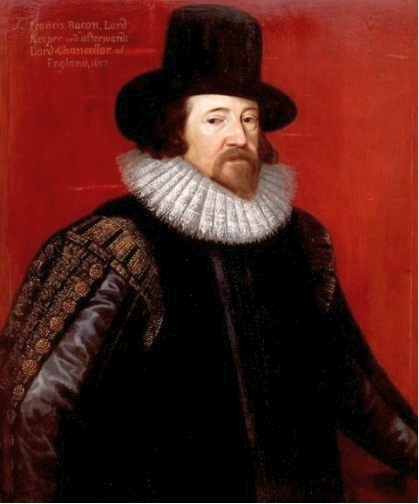2.2. Spotlight: Francis Bacon¶
2.2.1. Spotlight: Francis Bacon¶
Sir Francis Bacon (1561 – 1626), was an English philosopher, statesman, scientist, jurist, orator, essayist, and author. He is considered one of the fathers of modern science and of the scientific method.
His scientific method was put forward in his book Nova Organum (New Method), and was designed to replace the methods put forward in Aristotle's original works on logic from around 350 BCE. This New Method strongly influenced the development of the scientific method in modern science [Bacon].
His method distinguishes itself from the approach set down by Aristotle and his disciples, which had been followed by scientists for nearly 2,000 years. The Aristotelian approach favored exploring scientific problems through the application of logic, discussion, and rhetoric. In contrast, Bacon proposed an approach based on inductive reasoning supported by evidence.
Bacon also listed what he called the 'idols of the mind'. He described four types of false images—things which obstructed the path of correct scientific reasoning.
| Idols of the Tribe: | |
|---|---|
| The tendency to perceive more order and regularity in systems than truly exists, and is due to people following their preconceived ideas about things. | |
| Idols of the Cave: | |
| Personal weaknesses in reasoning due to particular personalities, likes and dislikes. | |
| Idols of the Marketplace: | |
| Confusions in the use of language and taking some words in science to have a different meaning than their common usage. | |
| Idols of the Theatre: | |
| Following of academic dogma and not asking questions about the world. | |
| [1] | Frans Pourbus the younger, Portrait of Francis Bacon [Public domain], via Wikimedia Commons. File URL: https://upload.wikimedia.org/wikipedia/commons/a/a7/Pourbus_Francis_Bacon.jpg |



